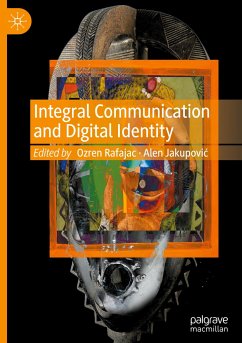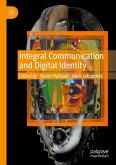This book explains how taxonomy can be used to describe and connect social actors in an integral way. Integral communication refers to a specific way of open information exchange which uses all qualities and preferences of subjects in conversation and allows anonymous feedback exchange, which enhances trust, learning and development. The role of integral communication is to promote perceptiveness, collaboration, personal development, and organizational learning among all the actors involved.
In this book, the authors propose a new original way of digital communication that uses tags and their metadata to describe qualities and preferences of a particular node in the network. Although most social networks, sharing platforms and e-government frameworks are already applying taxonomies and social tagging to define user identity, none of them is focused on tags exclusively, while within an integral communication framework they represent the basic element of user definition and networking. In addition, other social platforms rarely allow anonymous feedback exchange, and they are usually not focused on the personal development of their end-users. Aside from helping actors present their attributes and preferences, integral communication promotes teamwork, sustainability, trust, organisational learning, and personalized communication with AI machines.
After reading this book, readers will learn how to harness the power of integral networking and understand why anonymous feedback is a critical element for learning and development.
In this book, the authors propose a new original way of digital communication that uses tags and their metadata to describe qualities and preferences of a particular node in the network. Although most social networks, sharing platforms and e-government frameworks are already applying taxonomies and social tagging to define user identity, none of them is focused on tags exclusively, while within an integral communication framework they represent the basic element of user definition and networking. In addition, other social platforms rarely allow anonymous feedback exchange, and they are usually not focused on the personal development of their end-users. Aside from helping actors present their attributes and preferences, integral communication promotes teamwork, sustainability, trust, organisational learning, and personalized communication with AI machines.
After reading this book, readers will learn how to harness the power of integral networking and understand why anonymous feedback is a critical element for learning and development.









